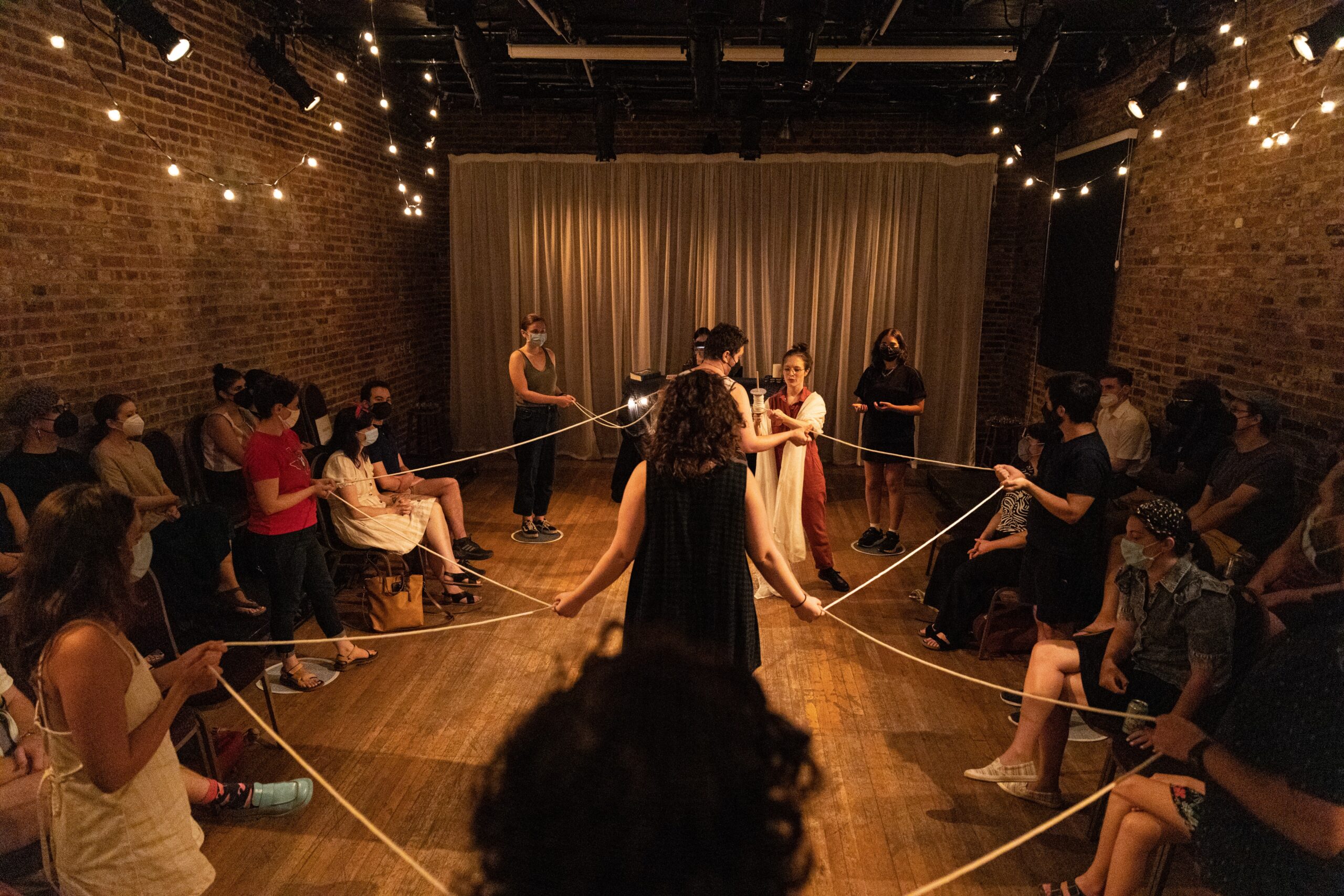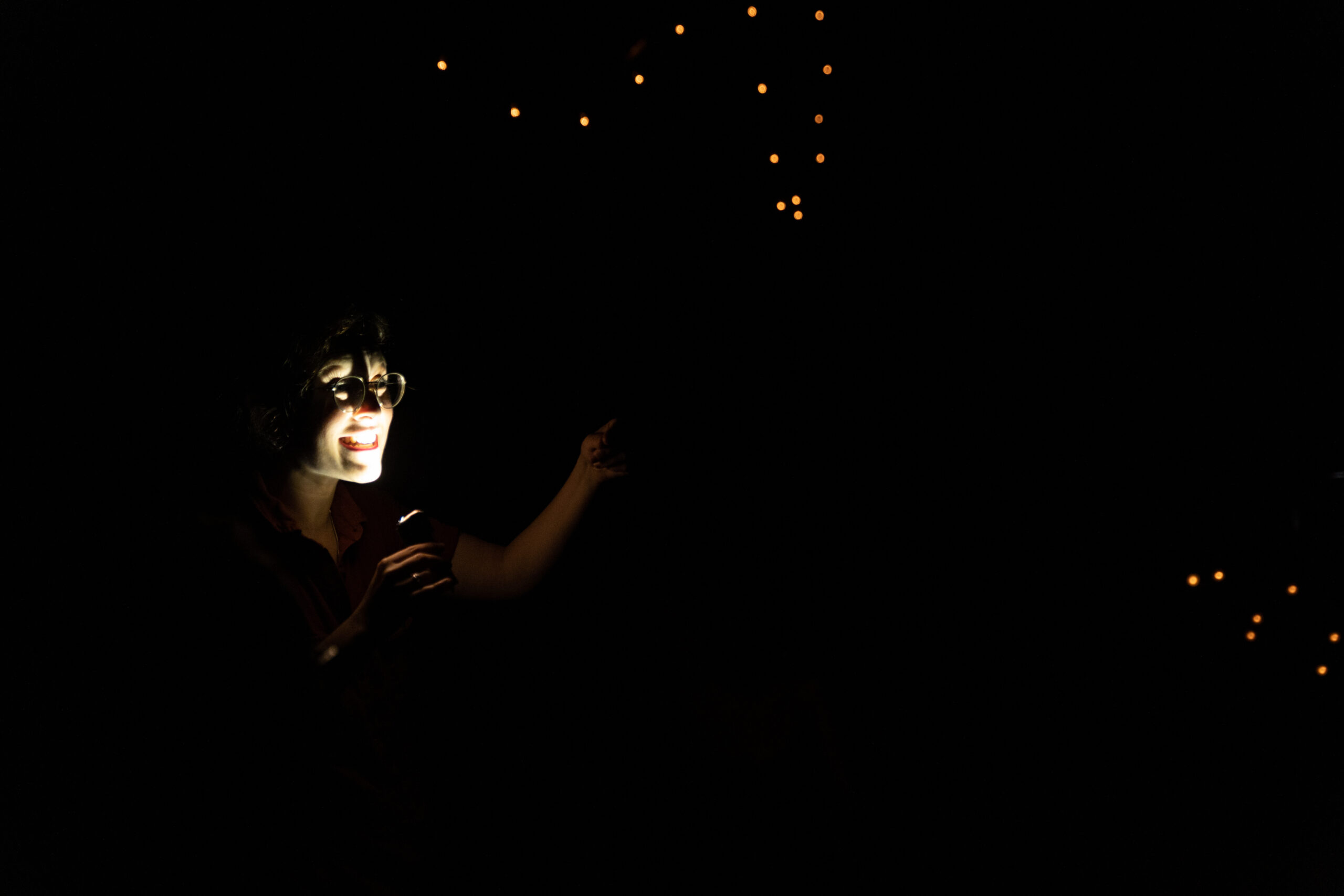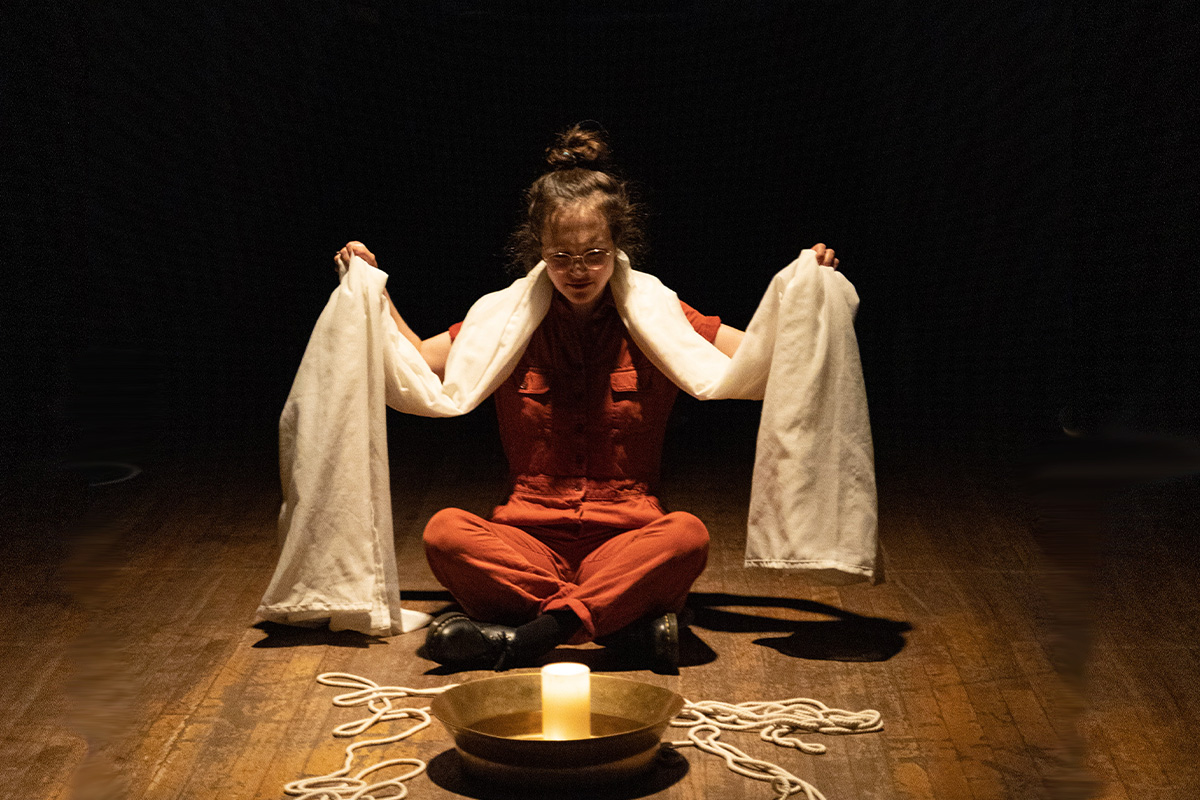Not so long ago, I didn’t know very much about seances. I’d definitely never heard of a Jewish seance. My understanding of Jewish thought around what happens after you die was that you maybe go to Sheol, a pit-slash-resting place which isn’t quite heaven or hell.
Well, it turns out… that’s not true. Over the past couple of years, I’ve become obsessed singularly focused on Jewish mystical thought around contacting the dead — so much so that I recently held my own Jewish seance. But I won’t get ahead of myself.
It started around April 2020 when I decided to read the Tanakh, the Hebrew bible, early in quarantine. I was going to Shabbat on Zoom every week, making challah and feeling more Jewish by the day; I was also pretty sure that the stories in the Tanakh contained lots of plagues, and that seemed topical! So I read the Tanakh as my pandemic hobby.
Eventually, I made it to the Book of Samuel and read about the Witch of Endor. In case you aren’t up on the Book of Samuel, the Witch of Endor is a medium who’s asked by King Saul to raise the prophet Samuel from the dead so Saul can get his advice about a war with the Philistines. However, Saul had forbidden people from contacting ghosts, so he was asking this woman to break a law he himself had created! There’s some back-and-forth, but he promises her she won’t get in trouble, and she does it: She raises Samuel from the dead.
I read it. And I reread it. And I was like, why has no one TOLD me this before?! From there, I went to the Brooklyn Public Library. I learned that there’s a rich, transgressive history of Jews contacting spirits from The Beyond™ — and being forbidden to do so.
In the 1800s, two Ashkenazi sisters in Cairo got very into the spiritualist movement, hosting seances in their apartment to communicate with the recently deceased. They would sit at a small table for half an hour, silent and focused, until their hands started to move across the table, signaling that they had made contact with a spirit. They passed along messages from these spirits through a planchette, a little wooden tablet with a pencil attached. These sisters did this every day!
Going back further, I learned that in some Hasidic traditions, it is customary on Erev Rosh Hashanah to go to a cemetery and visit the grave of a rabbi. Allegedly, a hand from the grave will come out and give you a slice of honey cake to wish you a sweet new year!
There are lots of teachings — in the Torah, Talmud, and from great rabbis — about how contacting the dead is banned in Jewish tradition. And yet… there are LOTS of stories of Jews reaching out to the dearly departed. It makes me think: If something is banned, then it’s gotta be happening. If something is prohibited, then it’s gotta be possible.
So, I decided to create a Jewish seance ritual. I wanted to know if I could; I wanted to hear from my ancestors. I created a seance by pulling pieces together from bits of existing traditions.

The Talmud teaches that you need a minyan of 10 for many sacred rituals. So first, I got a bunch of friends together, took over my apartment (thank you to my partner!!) and got everyone to stand in the shape of the sefirot, a powerful shape in Kabbalah. The sefirot are the 10 knowable attributes of the divine. These form a bridge between finite, definable reality and the unknown.
Then, I taught a little song with Yiddish words that were used in the Ashkenazi seances in Cairo in the 1800s: “Habe sich, tishelah,” which means something like “Raise yourself, little table.”
As the group sang, I put my hands on a challah bowl that my great-great-grandmother Sara River brought over from Latvia in the 1800s, which now sits in my apartment. I lit a candle. And I attempted to make contact with Sara River.
I called out her name, inviting her to come from the spirit realm into the room with us, and to give us a sign that she was there.
Did it work?
Well, yes and no.
Spoiler: no, Sara River did not appear as a specter emerging from her challah bowl and tell me how to live my life. (If I’m being totally honest, that’s probably the clear-cut ancestral guidance I’d been seeking; perhaps, in that way, I’m not so different from Saul.)
But yes, I do feel more connected to her than I did before. For one, I learned more about her: that she grew up in a village called Dvinsk (home of Jewish icon Mark Rothko), that she was married to a rabbi, and that after he died, she and her children moved to America. I didn’t learn this by magic, though. Rather, I learned it by talking to my dad in preparation for the seance, and by studying a family tree he had made.
Still, when I stood in a room with people and we performed a ritual together, something happened. I felt connected to something bigger than myself. I remembered that while I’m very small and my life is very brief, I’m also connected to something very big and very long.

Was this seance valid according to halakhah, or Jewish law? I haven’t consulted my rabbi, but I’m going to very confidently say: definitely not. But then, neither is a lot of how I live my life as a queer, progressive Jew in Brooklyn (for example, my partner’s and my semi-weekly tradition of having bacon and challah French toast after Shabbat morning services).
Doing something transgressive lit up my love of questioning: why didn’t I know about this part of Jewish history, and who gets to say what’s forbidden? And what is more Jewish than questioning it all, anyway? Moreover, creating this seance made me feel more committed to Jewish practice in my daily life — and more connected to my ancestors and to my vibrant, living Jewish community.
Thanks for the inspo, Witch of Endor!
If you’re in New York and would like to participate in a Jewish seance, Sarah will be doing another round of seances at Union Temple House in Prospect Heights April 27-29, presented by The Neighborhood in collaboration with Brooklyn Jews. You can learn more here.



